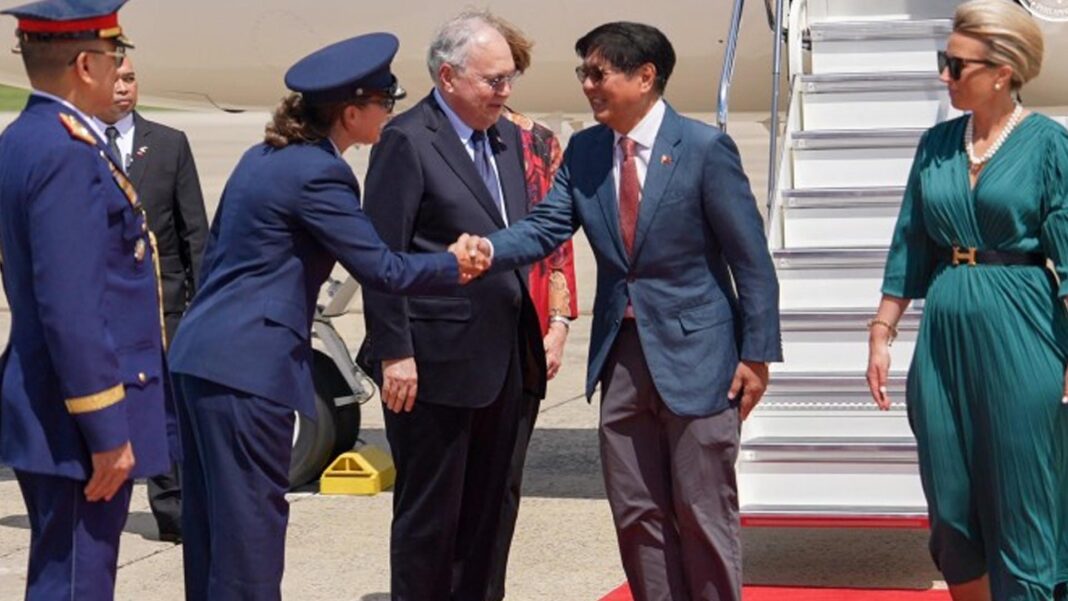President Ferdinand R. Marcos Jr. arrived in Washington, D.C. early Monday (Manila time) for a three-day official visit aimed at deepening the Philippines’ strategic partnership with the United States, particularly on defense and economic cooperation.
The President’s plane touched down at Joint Base Andrews at 2:48 p.m. Sunday (2:48 a.m. Monday, Manila time), where he was received by Philippine Ambassador to the US Jose Manuel Romualdez and US Ambassador to the Philippines MaryKay Carlson.
Marcos is the first Southeast Asian leader to meet with US President Donald Trump since the latter began his second term in January.
Before leaving Manila, the President said that the visit reaffirms the enduring alliance between the Philippines and the US, with a focus on strengthening security cooperation, promoting trade and investment, and supporting regional peace and stability.
“My visit to Washington, D.C., and most importantly, my meeting with President Trump, is essential to continuing to advance our national interests and strengthening our alliance,” Marcos said in his departure statement.
Marcos and Trump are expected to hold substantive discussions on strengthening bilateral cooperation, particularly in the areas of economic development and security.
Among the priorities of his visit are enhancing trade and economic cooperation, especially in light of the recently imposed 20 percent US tariff on Philippine exports.
The Chief Executive also said he intended to convey to Trump and his Cabinet officials that the country is ready to negotiate a bilateral trade deal that will ensure strong, mutually beneficial and future-oriented collaborations.
Marcos is scheduled to meet with various business leaders to explore business opportunities that will further grow the country’s economy.
His visit to the US comes at the formal invitation of Trump and builds on the active exchanges the country has had since the assumption of the new leadership, including meetings between foreign affairs officials, visits to Manila by the US Secretary of Defense and the Director of National Intelligence, as well as the arrival of several bipartisan US Congressional delegations. (PNA)


